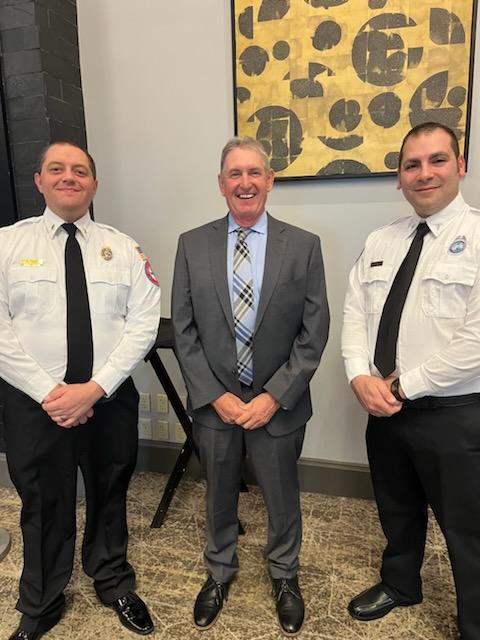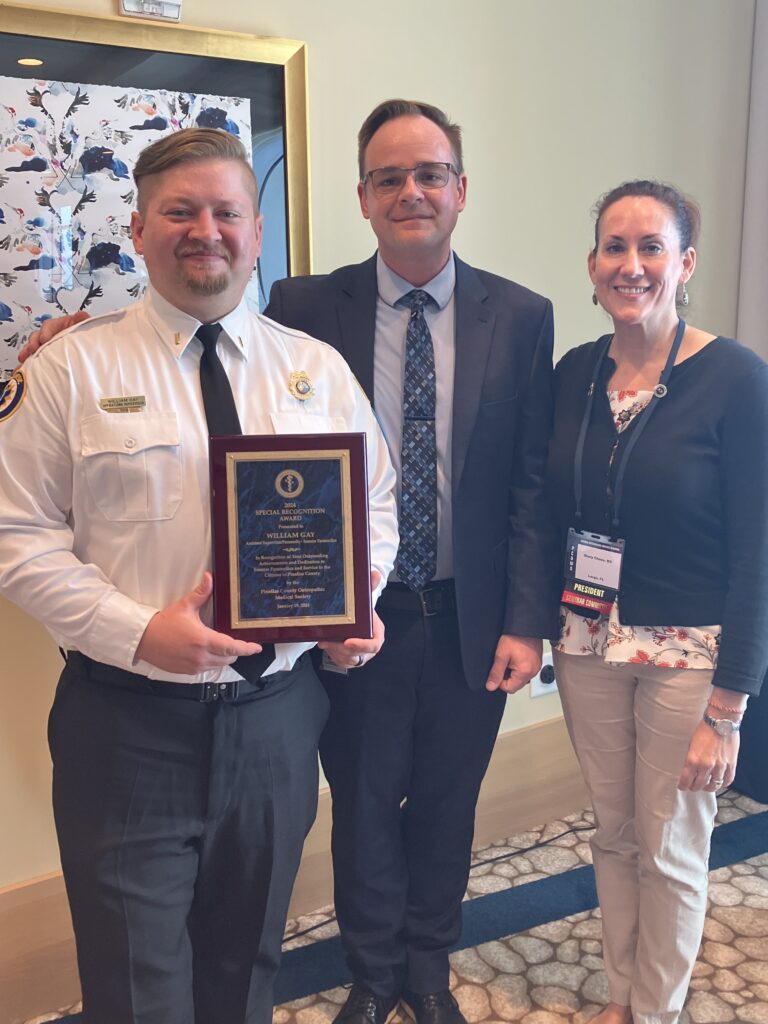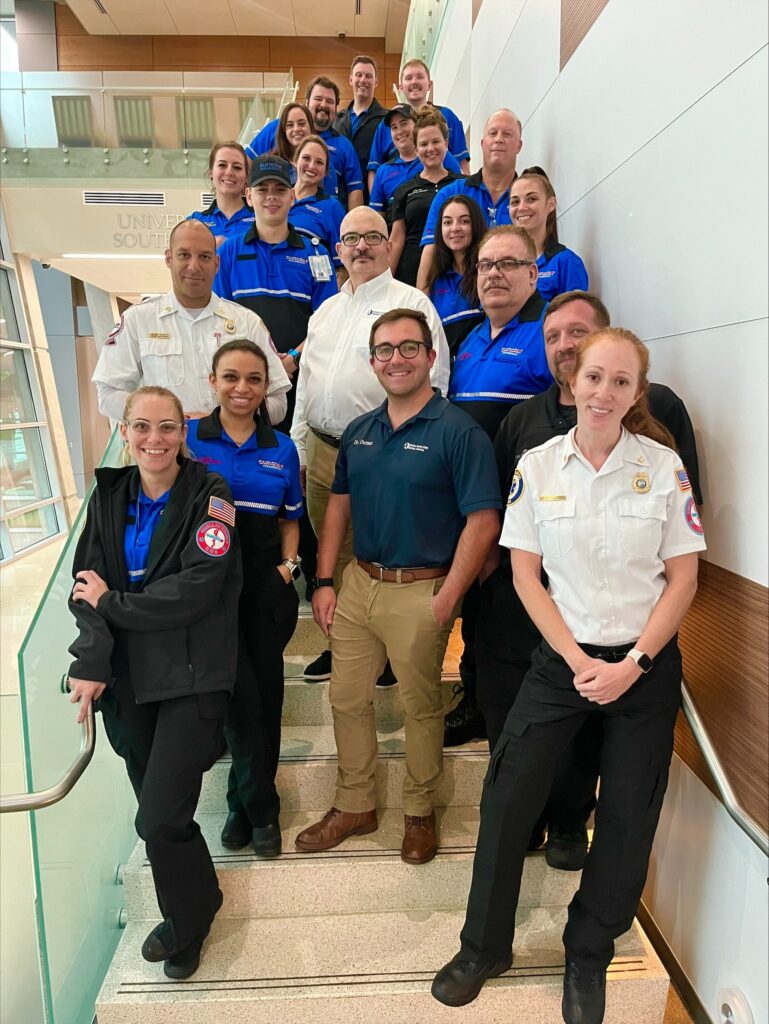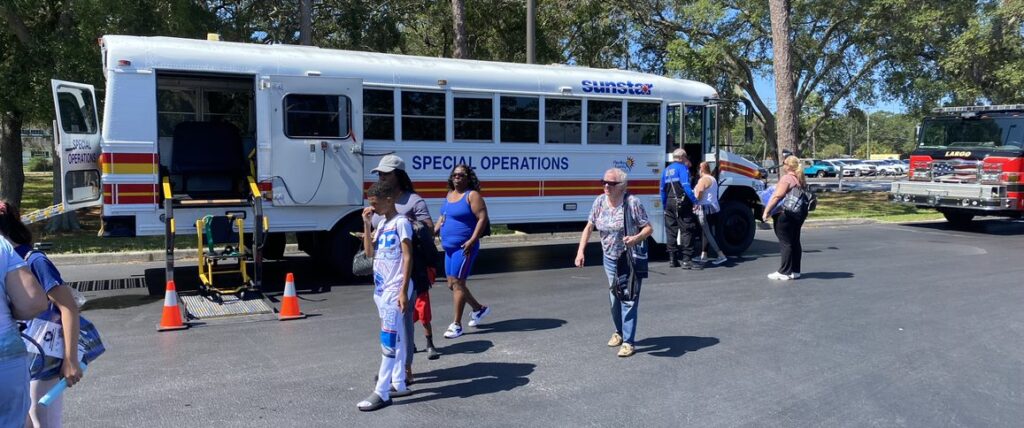Growing up with parents who work in emergency medical services (EMS) can be tough; they have physically and emotionally demanding jobs and work overnight shifts, long hours, weekends and holidays. The family of an EMS worker learns to celebrate holidays like Christmas on different days than the calendar indicates, but they get an inside look at the rewards of the job.
“An EMS career can be rough on your family. You don’t get the quality time during evenings and weekends that you would while working a 9-to-5 job,” said Jon Michael Farris, a paramedic with Sunstar Paramedics. “But, for the kids, there is a sense of pride knowing that your parents are saving lives every day.”
That pride can inspire future generations of EMTs, paramedics and EMS workers, like Farris and fellow Sunstar employee Bobby Stanley, to follow their parents into the industry and commit to serving the community as a career.
 Farris’ father started working for Pinellas County EMS in 1973, his grandfather was a volunteer firefighter and Army medic, and both his mom and stepmother worked in EMS.
Farris’ father started working for Pinellas County EMS in 1973, his grandfather was a volunteer firefighter and Army medic, and both his mom and stepmother worked in EMS.
Farris started his work in EMS at a young age. His father was in charge of the Sunstar Paramedics Explorers – a program through the Boy Scouts of America – and Farris would attend meetings with him until he could officially join in high school. The Explorers learned about EMS jobs and rode with the ambulance crews to assist with basic tasks, like taking blood pressure and filling out patient contact forms.
 Stanley’s family has a long history in Pinellas County EMS: his grandfather owned one of the first ambulance companies in Pinellas County and his other grandfather was the chief of Clearwater Fire and Rescue. Both of his parents worked for Sunstar Paramedics, and most of his aunts and uncles spent a portion of their careers in the EMS industry.
Stanley’s family has a long history in Pinellas County EMS: his grandfather owned one of the first ambulance companies in Pinellas County and his other grandfather was the chief of Clearwater Fire and Rescue. Both of his parents worked for Sunstar Paramedics, and most of his aunts and uncles spent a portion of their careers in the EMS industry.
Stanley’s parents transitioned to administrative roles when he was young, and he remembers spending time at Sunstar Paramedics’ headquarters or at the fire station with his family.
“Hanging out at the station builds camaraderie with the other EMS families,” said Stanley. “No one else really understands the lifestyle and weird hours, and you end up forming close bonds with kids who have similar situations.”
Neither Stanley nor Farris planned on pursuing a career in EMS after graduating high school. Stanley attended University of South Florida and studied microbiology to pursue a career working in a laboratory.
In 2008, when Stanley graduated, there weren’t many job openings. He decided to get an EMT license and began working for Sunstar Paramedics in 2009. He obtained his paramedic certification a few years later.
“There will always be EMS jobs available – even during a recession,” said Stanley. “I always knew that EMS was an option and would be a career that I enjoyed.”
Now Stanley is a part-time paramedic and part-time EMS instructor at St. Petersburg College while pursing his master’s degree in public health. He hopes to take a larger role in evolving the EMS industry through research, focusing on injury prevention and how system design can prevent employee burnout.
“EMS is a relatively new field,” said Stanley. “Medical doctors have conducted most of the research so far, but now public health officials who have actually worked in the field are taking a larger role in developing the industry.”
Farris also explored different career paths including the restaurant and landscaping industries before moving into EMS. He became an EMT for Sunstar Paramedics in 2011 and then became a paramedic.
“Paramedic school was always part of my plan, but I think working as an EMT first helps you be a better paramedic,” said Farris. “The job experience gives you an edge while in school.”
Another advantage was his family’s support. They understood the rigorous coursework and offered advice. His family’s experience gave him realistic expectations of what the job would entail.
Farris plans to continue his career as a paramedic in the field who interacts with patients on a daily basis. Each workday involves making life-saving decisions, and he takes pride in the fact that has the knowledge and training to make critically important choices.
And it’s helped him grow closer to his family, especially his father.
“It’s hard to fully comprehend how emotionally draining this job can be until you experience it,” said Farris. “It’s created a bond with my father that wouldn’t be possible if we weren’t both paramedics.”



